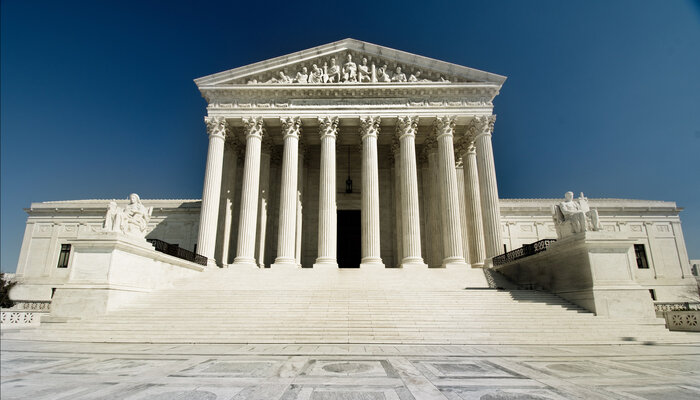The recent scandal involving Justice Clarence Thomas and his acceptance of “personal hospitality” gifts worth hundreds of thousands of dollars underscores the need for reforming the Supreme Court. The institution is suffering from a loss of public trust, and it needs to become more accountable through structural change. Polls show there is bipartisan consensus for one important change: implementing term limits for justices. This would likely bring the added benefit of helping the court become more diverse and representative of the country’s population.
All but one state supreme court in this country has either fixed terms or mandatory retirement, and so do constitutional courts in every other major democracy in the world. But the tenure of Supreme Court justices in the United States can span decades and many presidents, allowing justices to accumulate power, influence, and a sense of entitlement.
The issue has become more urgent as the court’s current majority has lurched to the right and issued rulings opposed by most Americans, such as repealing the constitutional protection of abortion and loosening gun laws amidst an epidemic of mass shootings. Limiting the justices’ terms would mean more presidents would be able to make more appointments, empowering the public to hold the court accountable and putting an expiration date on any court supermajority.
One option popular with both the public and judiciary experts would involve appointing justices to 18-year terms, with each president allowed to make two appointments in each four-year presidential term. Congress could implement this reform by statute. Limiting the justices to specific terms would ensure that every president has an equal imprint on the Court and create more opportunities to appoint new justices that reflect changing demographics and the sentiments of many different communities, including Latinos.
On Tuesday, Chief Justice John Roberts declined an invitation to testify at a Senate Judiciary Committee hearing about ethics and the Supreme Court. Instead of appearing in person, he sent a “Statement on Ethics Principles and Practices.” The problem is that these principles are nonbinding.
When the news organization ProPublica revealed this month that Thomas has for years been routinely accepting luxury travel, gifts and accommodations from Harlan Crow, a real estate developer and Republican megadonor, Thomas said that “colleagues and others in the judiciary” had advised him that there was no need for him to disclose such freebies.
If the issue is so murky for Thomas that he had to ask for advice, an obvious solution is crafting ethics rules that spell out what is appropriate behavior on and off the bench for the nine justices, removing even the appearance of conflicts and influence-peddling. All other federal judges are subject to such rules of conduct. The American Bar Association recently suggested just that, saying the court’s legitimacy is at stake.
If the Supreme Court cannot produce its own code of ethics, Congress can and should require it.
A version of this article was originally published in Spanish by La Opinión.






